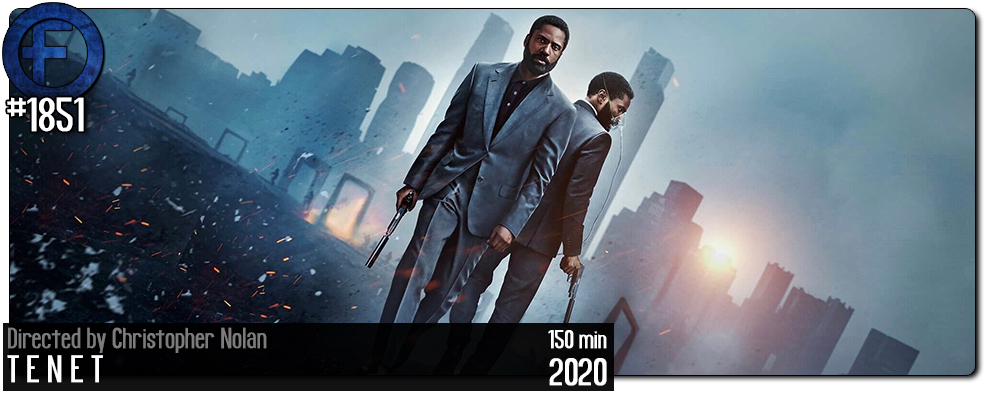Movie Review – Tenet
Principal Cast : John David Washington, Robert Pattinson, Elizabeth Debicki, Dimple Kapadia, Michael Caine, Kenneth Branagh, Martin Donovan, Fiona Dourif, Yuri Kolokonikov, Himesh Patel, Clemence Poesy, Aaron Taylor-Johnson.
Synopsis: Armed with only one word, Tenet, and fighting for the survival of the entire world, a Protagonist journeys through a twilight world of international espionage on a mission that will unfold in something beyond real time.
********
Very few directors working today command the reverence and awe thrown the way of Christopher Nolan, the most powerful independent filmmaker currently sitting behind the camera. With the success of his Dark Knight trilogy propelling him to some kind of creative zeitgeist, the man has his pick of projects and the kind of budgets that make all bar Michael Bay and Spielberg weep with envy. Known more for his mind-bending stories and genre-busting style, Nolan is perhaps better known now for his cinematic boundary pushing than his superhero largesse; The Prestige gave us magical mystery, Inception took us into our dreams, Interstellar launched us on a journey beyond time and space itself, and Dunkirk, perhaps Nolan’s most accessible post-Memento story, gave us a war film like no other. It’s almost appropriate for a director with such a command of cinematic language that he presents his least accessible film to-date, challenging the viewer to come along on this time-twisting action/thriller that never really explains itself or gives us a chance to figure out what’s going on.
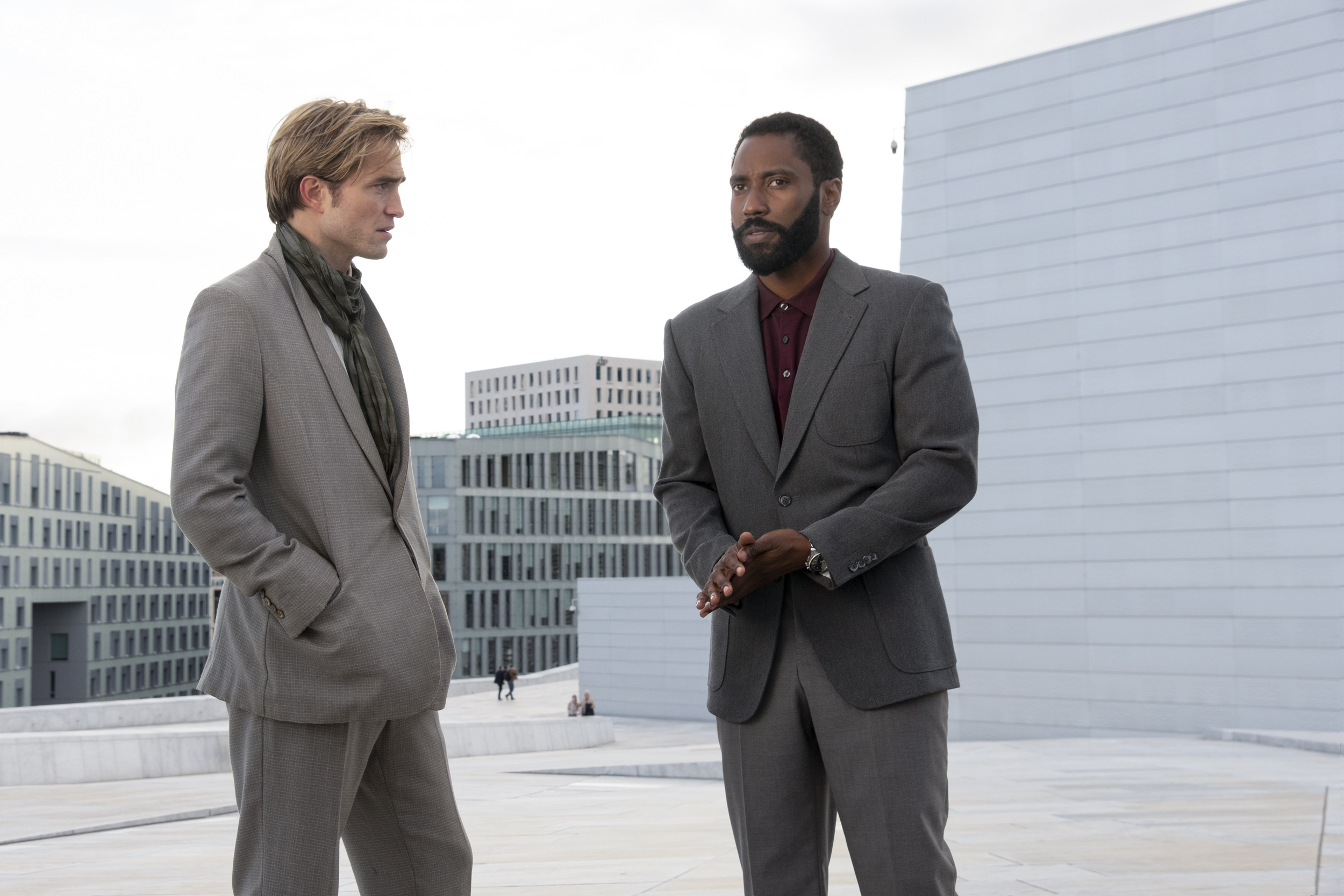
An unnamed CIA Agent, known throughout rather self-servingly as the Protagonist (John David Washington) is nearly killed following a terrorist raid on a concert hall, before finding himself on a mission to prevent World War III breaking out thanks to the use of time-inversion technology. Apparently in the future somebody thinks it’s a good idea to invent a machine that can reverse an object’s entropy allowing it to move backwards in time. Russian oligarch Andrei Sator (Kenneth Branagh in fine teeth-gnashing form) has the secret to this device via a mechanism known as “the algorithm”, through which he plans to destroy reality by causing all of history to run backwards upon the moment of his death. The Protagonist is seconded by Tenet, a super-secretive organisation, to enact the aid of arms dealer Priya (Dimple Kapadia) to prevent this outcome, and together with handler Neil (Robert Pattinson) and Sator’s estranged wife Katherine (Elizabeth Debicki), as well as military commander Ives (Aaron Taylor-Johnson), the Protagonist sets about doing just that.
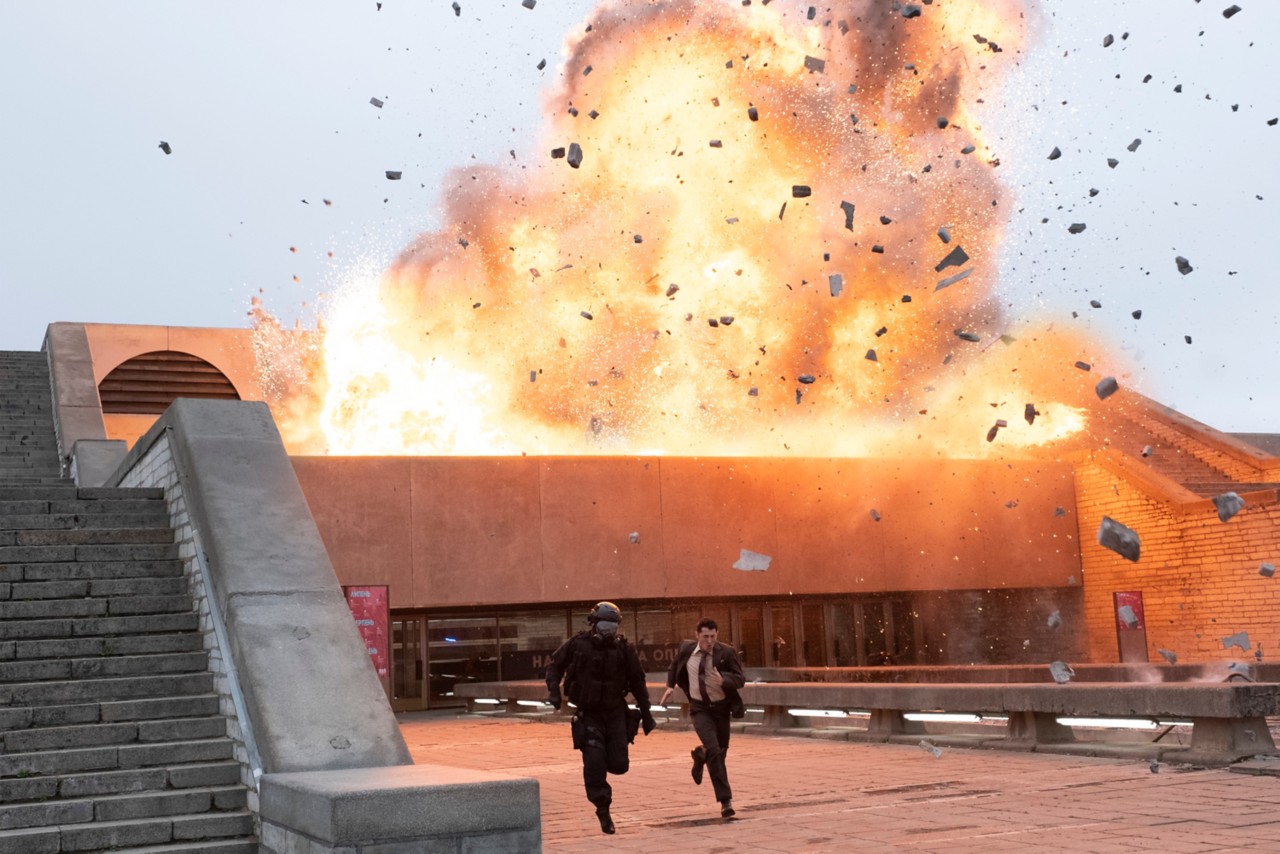
Look, I’ll call it for what it is. Christopher Nolan attempts to do in a feature film of two-and-a-half hours what Doctor Who can get away with in a single episode. Tenet mixes its heady time-travel science with big-screen action and startling visual effects (notably the reverse-time effect) as well as stunning filming locations and a dynamite soundtrack to produce a Nolan film for the ages; if only it wasn’t so confusing. The preposterous plot about objects and people moving back and forward through time filtered through Nolan’s rigorous adherence to scientific exactness feels a bit silly, as if it were an idea in search of a story rather than a story with a decent plot twist. Nolan spend the best part of a decade coming up with the idea and premise for Tenet, and to his credit the science and in-film logic work superbly well. But crafting a film so hostile to audience understanding does him a great disservice.
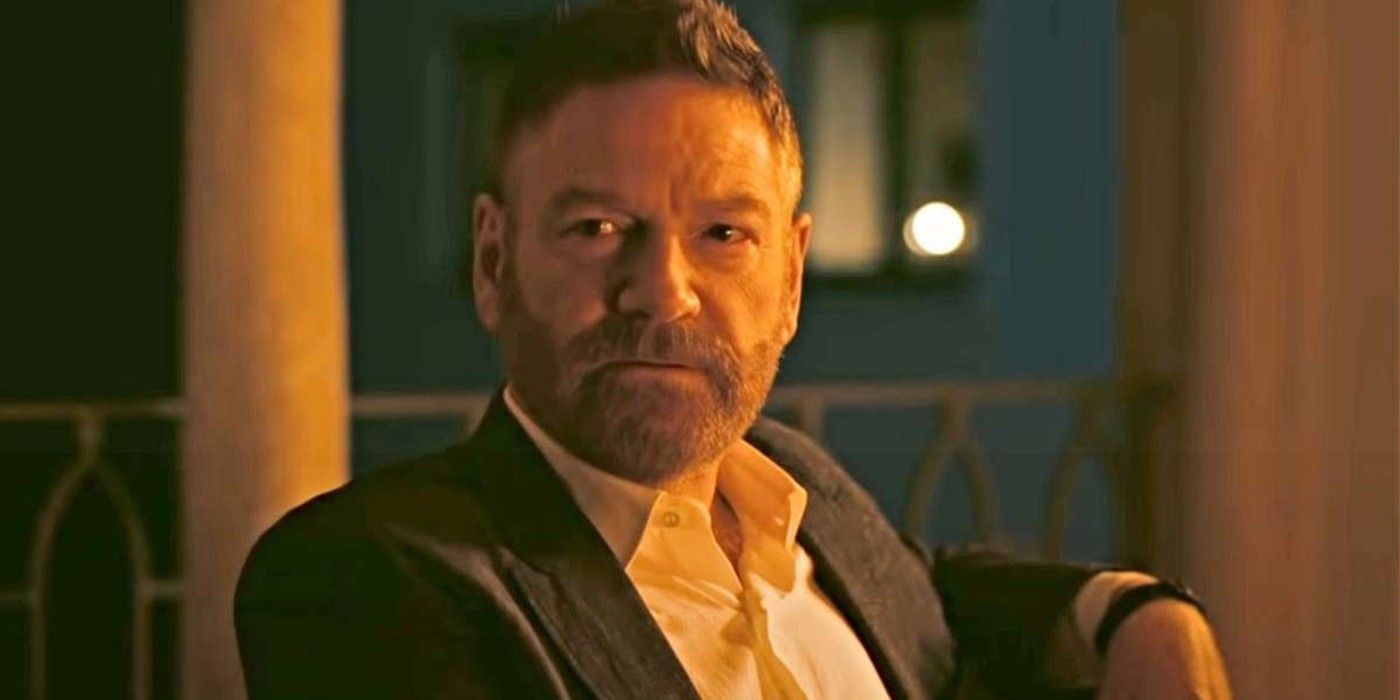
Part of the great thing about Nolan’s best films, such as Inception and Interstellar, where confusion ought to reign, is that the filmmaker makes great pains to explain the premise and scientific principals he’s working with so the audience can understand what’s going on. Exposition to set up the great action sequences and amazing visual effects are required for any audience to get a grasp on such heady ideas. Tenet, which offers similarly pleasing action sequences, forgoes explanation and simply lands you into the middle of it all without a shred of pause for “okay guys, here’s what’s happening” so we at least understand the stakes. Tenet just happens, offering glimpses and brief moments to take it all in adequately. I’ll be honest, though: within the first ten minutes I was totally lost and struggling to keep up. Sadly, Tenet feels like Nolan decided to treat the audience like idiots attempting to understand his latest brain fart rather than, as an good storyteller will do, setting up the story so people can at least follow along.

I could complain, but it’s a moot point. Tenet requires multiple viewings to get your head around its intricacies, which some might suggest is Nolan’s biggest plot yet. Remember that sequence in Inception where Leonardo DiCaprio spend fifteen minutes walking Ellen Page through dream-Paris explaining what the entire plot conceit was about, with the French skyline folding in upon itself? Not only was it a beautiful and effective sequence, it gave us all the information we needed to understand the rest of the movie. Tenet has no such sequence, save a brief, blink-and-miss it cameo with Clemence Poesy (as a scientist) explaining how some spent bullet casings are moving backwards through time. I think. There’s no character development, no hero’s journey, no discernible stakes other than some offscreen global annihilation requiring inordinate manpower and incredibly complex character-chessboard manipulation to set right, and aside from a trio of well filmed action sequences Tenet feels a little too oblique for most viewers.

Of course any reasonable Google search will indicate the film is palindromic in nature – even the villain Sator is named after a famous Latin puzzle piece known as the Sator Square – from its title, Tenet, down to the idea of reverse time occupying similar space to normal time in a manner reflective of the other. Fans of sci-fi will likely cotton onto the ideas and concepts presented within Nolan’s film faster than those who think science fiction is silly, because the director resolutely refuses to give you time to ask sensible questions about the plot. Personally, I found this mirroring and time-play tantalising if unfulfilling, because I couldn’t work out exactly what the point of it all was. And by the time the bombastic final act kicked in, I was utterly lost. Totally, and I consider myself a reasonably intelligent film viewer. Bamboozled, I persisted; the film’s resolution felt cathartic despite me not understanding why. Tenet is a bit of a weird, eccentric beast to tackle, so best to be on your game when you press play.
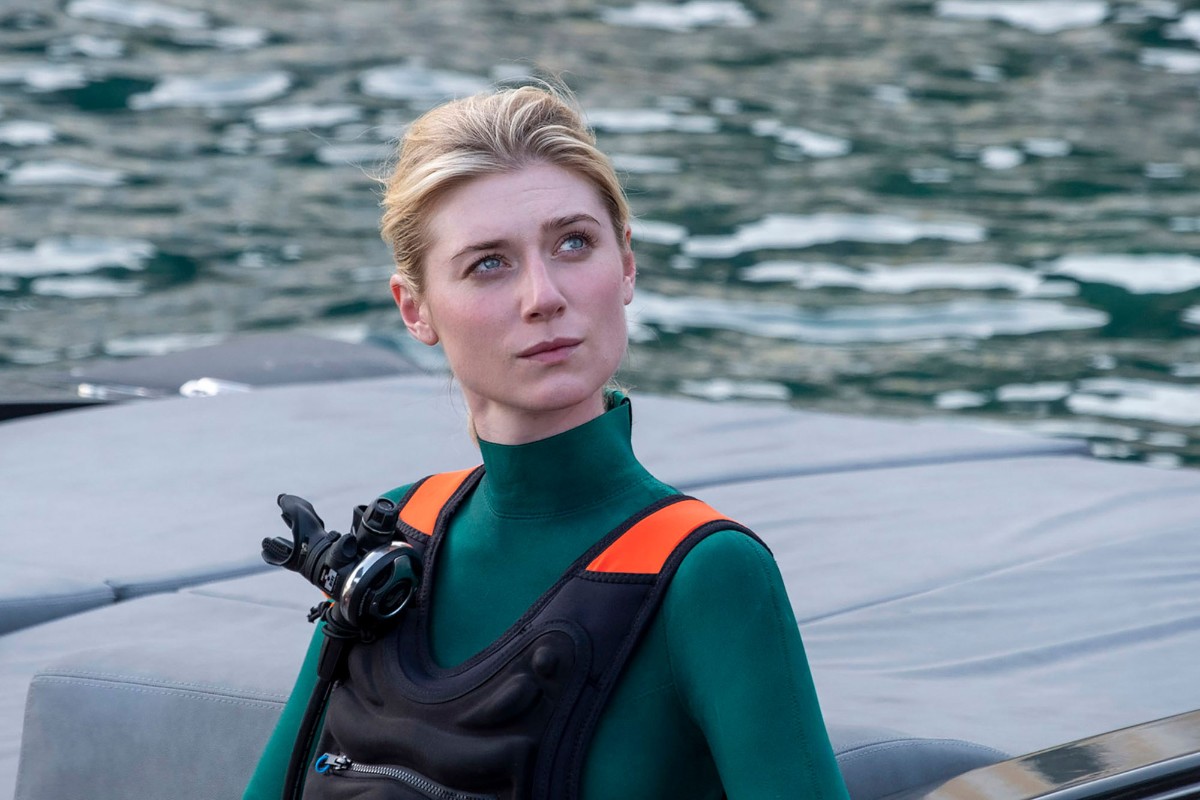
Leading the charge into this cinematic ouroboros are John David Washington, as the Protagonist, whose motives and reasoning are never explained beyond his focus on “the mission”, whilst Robert Pattinson’s turn as a debonair spy associate offers some of the film’s brief moments of wit. Aaron Taylor-Johnson proves an unrecognisable tough-guy towards the film’s gun-totin’ conclusion, while Kenneth Branagh chews every scene he’s in and more, looming like a colossus over the film’s arch-villainy. Surprisingly, however, it’s Aussie actress Elizabeth Debicki who proves to be Tenet’s most valuable asset, as Sartor’s maligned and vilified wife, befriending the Protagonist and aides him in achieving his endgame. Debicki gives the film some much lacking emotional weight: Sator has emotionally blackmailed her through his access to their son, who he holds custody of at the expense of his wife’s fear of reciprocity.

Holding all of this together is Nolan’s masterful direction of action, and in truth some of the sequences within Tenet’s purview are astonishingly mounted, with the kind of operatic grandeur the director is synonymous with. Action sequences with objects moving in reverse time play out within traditional forward moving items, explosions and gunfire and entire plot threads weave into each other so assuredly the cracks and seams never once threaten to separate. Car chases, gun battles, a high-octane plane crash into an airport terminal (done for real, no CG) and all manner of clever nods to time running backwards will have you wondering how it was all achieved, and just how clever Nolan is in piecing this jigsaw together so expertly. A thunderous sound mix buries a lot of the dialogue into a garbled mess (I watched the last half of this film with the subtitles on because I couldn’t understand what was being said half the time) and Ludwig Goransson’s wonderful, scintillating score permeates almost every particle of fabric making up this movie. The fact it all moves with such breathtaking speed and an absolute refusal to pause for a moment’s reflection or contemplation and still runs at 150 minutes might give some viewers pause, but Tenet wants not for attention. It grabs you from the get go and generates an unrelenting experience into cause and effect, and the utter lack thereof.
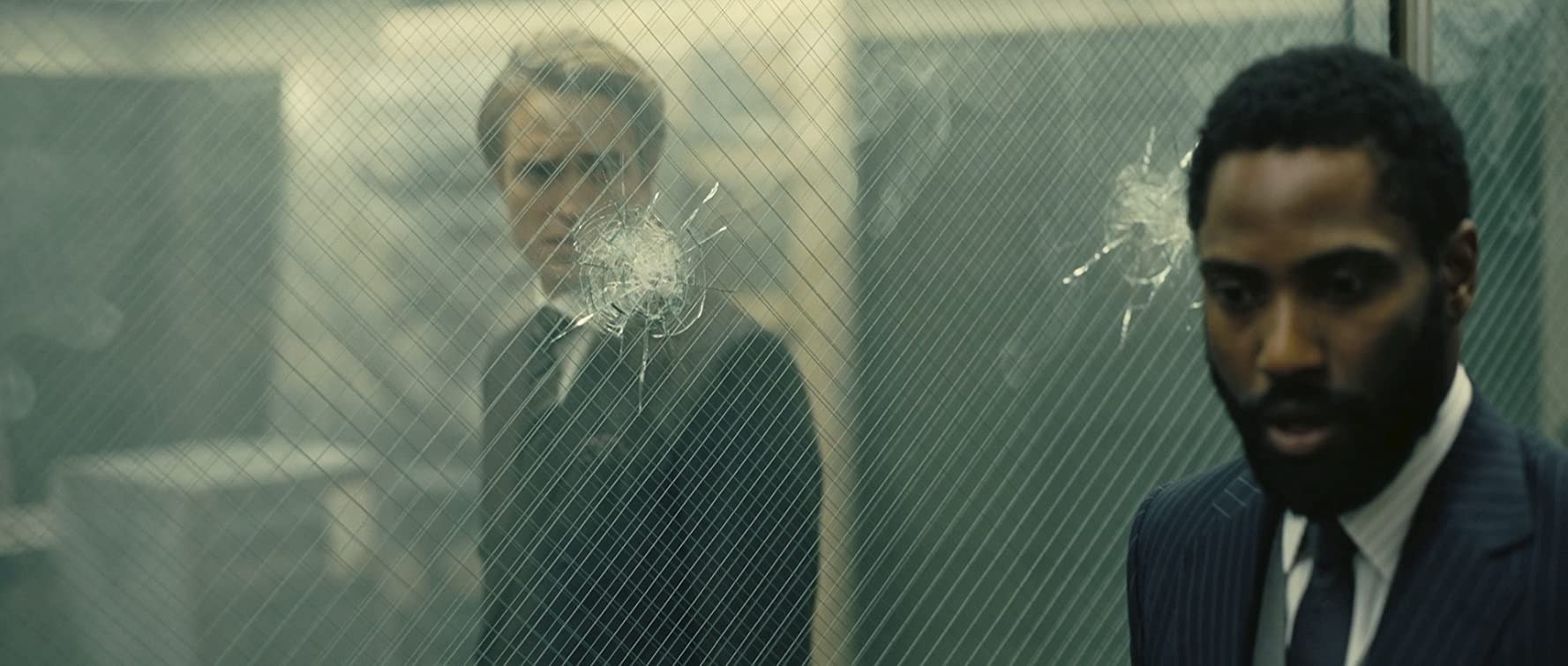
So is Tenet a good film? Hard to say, without multiple viewings and time-relative examination. Initially it’s a confusing, cerebral head-trip that is so different to anything Christopher Nolan has done before it’s almost hard to believe it’s the same guy who gave us The Dark Knight and Interstellar. Despite having to work hard to understand what was going on and perplexing plot points to figure out, and a really hard to follow dialogue mix (sadly the home version contains many of the same problems plaguing the theatrical release, with people complaining they couldn’t understand the actors speaking) I think Tenet will likely be regarded in years to come as a minor masterpiece. Once we’ve all got our heads around the plot, around what Nolan was doing with this movie, I’m convinced it’ll be regarded as a classic of the sci-fi genre that rewards the viewer over the duration – we need time to sit with this film, after all Nolan had a decade to dream it up. We must reward ourselves with time to spend in its many, many strands of subtext and plot. Heady themes and brain-busting scientific principles aside, Tenet makes a handy action movie; with Nolan throwing temporal physics into the mix and you have a better-than-decent thinking man’s apocalyptic thriller.


